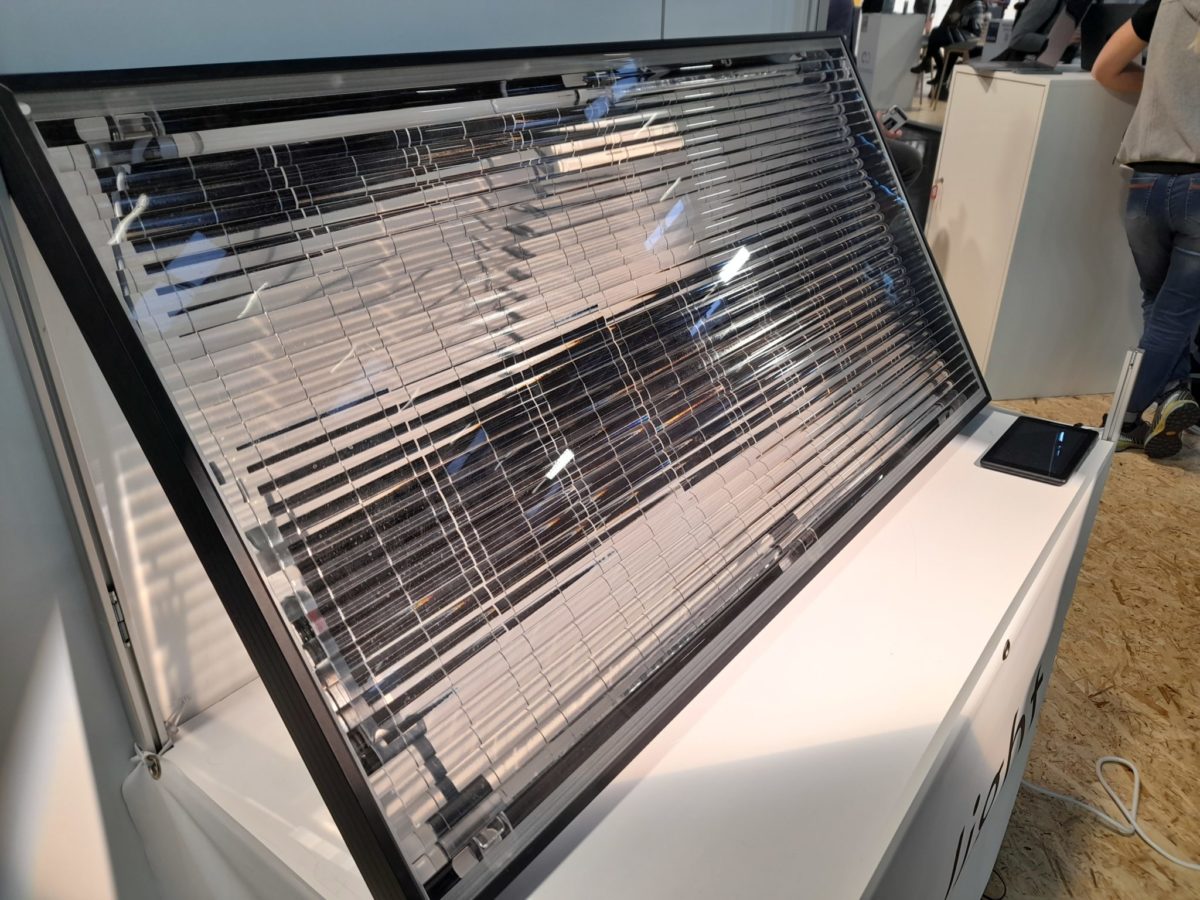From pv magazine International
Swiss startup Insolight – founded by three researchers from École polytechnique fédérale de Lausanne – recently developed a new photovoltaic module for agrivoltaics applications. This move represents a significant change in the company’s strategy, as it previously specialized in concentrating PV module technology.
“We move to crystalline silicon due to its lower costs,” R&D engineer Laetitia Anglade told pv magazine. “The basic structure of the module is the same as that of our previous product and we just switched from expensive III-V multi-junction solar cells to conventional monocrystalline PERC products.”
The “Theia” panel has a nominal power of 106 W and a power conversion efficiency of 20.1%. For comparison, the CPV module previously developed by Insolight had a 30% efficiency and power output of 160 W.
The new product measures 1,141 mm x 595 mm x 50 mm and weighs in at 15 kg. The open-circuit voltage is 44.8 V and the short-circuit current is 3.0 A. Its frame is made of anodized aluminum alloy and its junction box has an IP 67 rating.
The panel can be used with operating temperatures between -40 C and 85 C. The power temperature coefficient is -0.32% per degree Celsius. The solar cells are covered with protective glass and optical lenses to concentrate and direct sunlight onto them at around two times the intensity of standard solar glass.
The module was recently deployed at a large–scale pilot facility in Valais, Switzerland. The project was developed by Insolight’s partners – Swiss research institute Agroscope and energy company Romande Energie. The agrivoltaics project occupies a surface of 165 m2, with the land used for to grow raspberries and strawberries under pots. With this configuration, the Theia modules, based on Insolight optical micro–tracking technology, purportedly offer dynamic light adjustment while ensuring steady solar power production.
“The pilot plant was developed to replace and improve the protection used over crops against weather conditions, while producing energy at the same time,” the three companies said in a joint statement. “It allows Agroscope to study the impact of light conditions on crop development.”
Agriscope will analyze the agronomic data to gauge the control algorithm of the photovoltaic modules, irrigation and nutrient supply.
“At the same time, Romande Energie will evaluate the solar electricity production of the installation during the four years of the project,” the consortium said.
This content is protected by copyright and may not be reused. If you want to cooperate with us and would like to reuse some of our content, please contact: editors@pv-magazine.com.









By submitting this form you agree to pv magazine using your data for the purposes of publishing your comment.
Your personal data will only be disclosed or otherwise transmitted to third parties for the purposes of spam filtering or if this is necessary for technical maintenance of the website. Any other transfer to third parties will not take place unless this is justified on the basis of applicable data protection regulations or if pv magazine is legally obliged to do so.
You may revoke this consent at any time with effect for the future, in which case your personal data will be deleted immediately. Otherwise, your data will be deleted if pv magazine has processed your request or the purpose of data storage is fulfilled.
Further information on data privacy can be found in our Data Protection Policy.